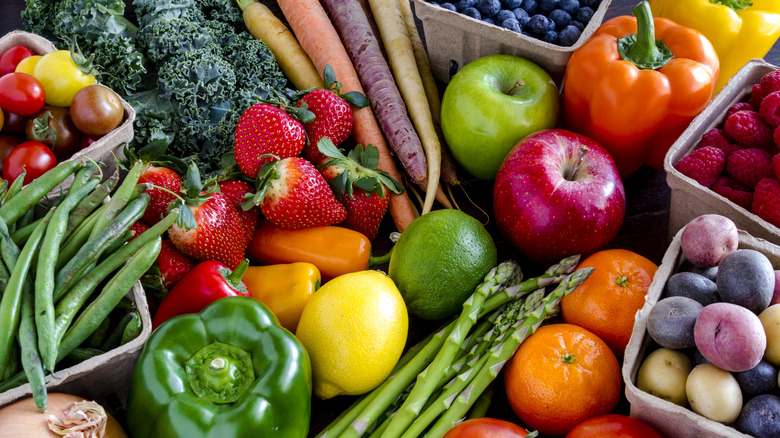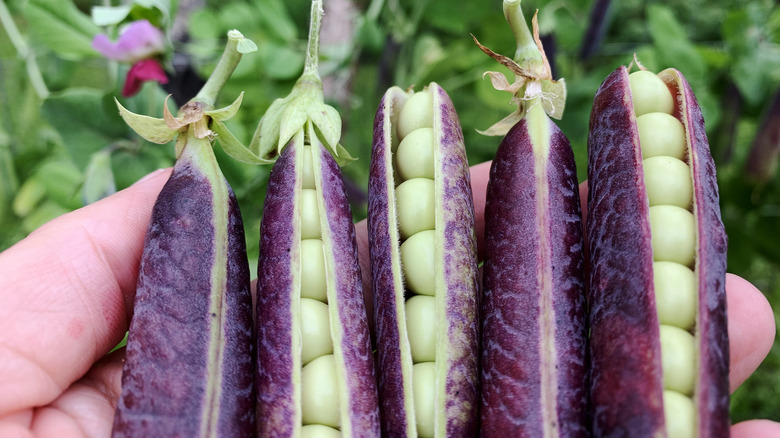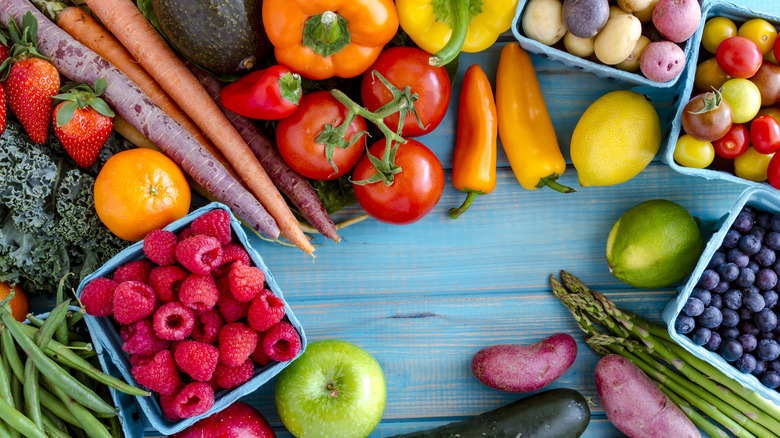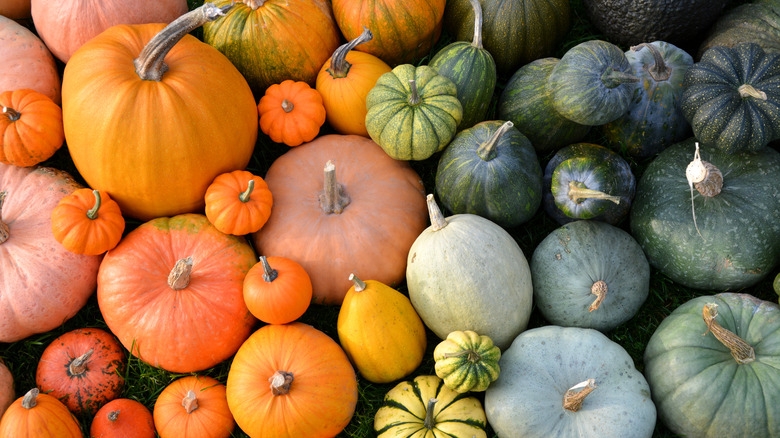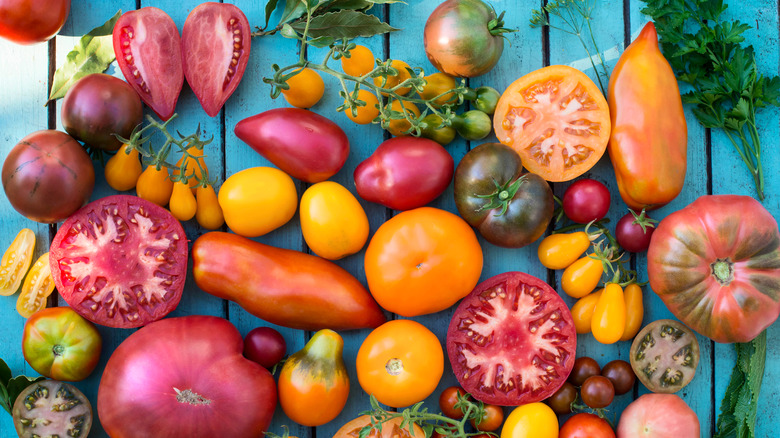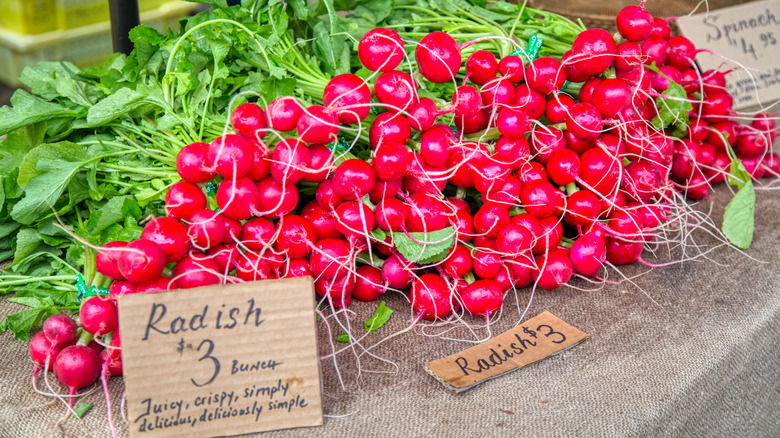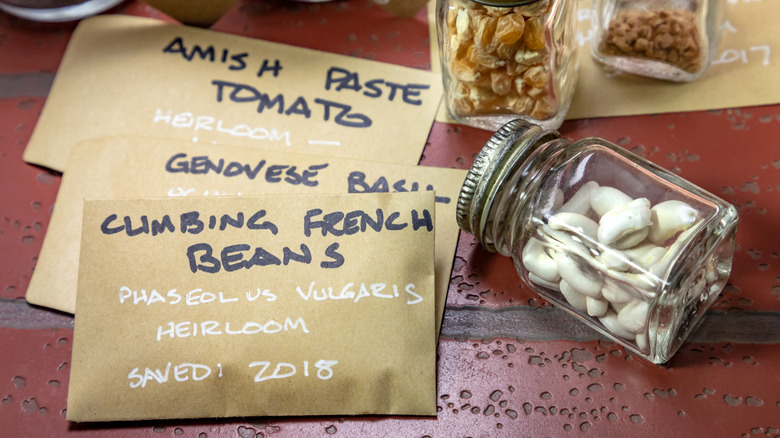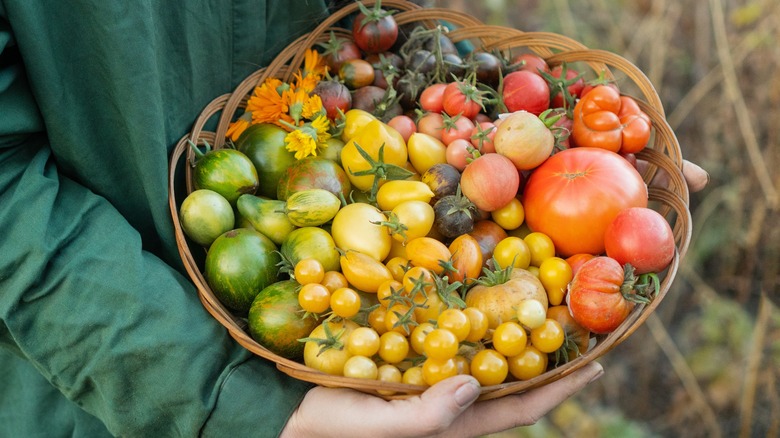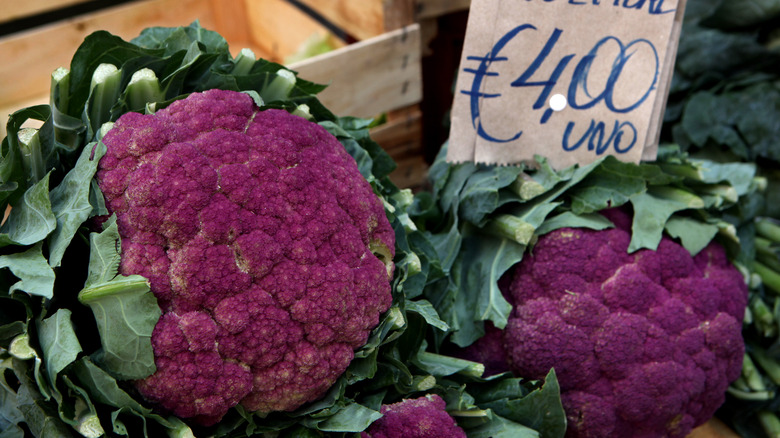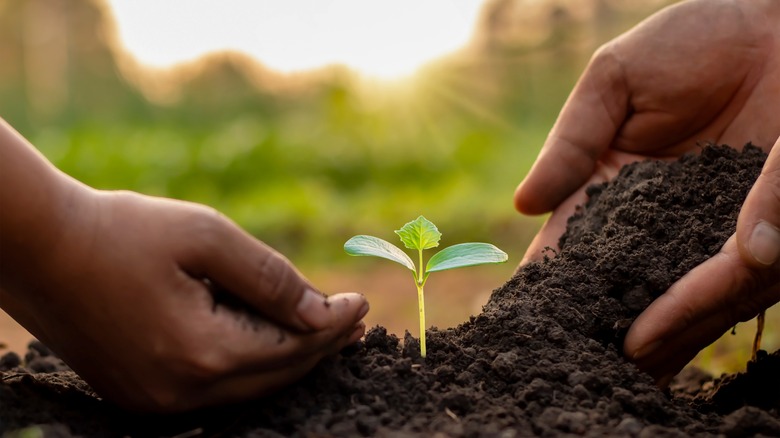What Are Heirloom Vegetables And Why Should Gardeners Want To Grow Them?
Heirloom vegetables are cultivars that have been around for generations, sometimes centuries. True heirlooms date back to before hybrid seeds were introduced, prior to 1951, but many have been around much longer. Growing heirloom vegetables helps encourage genetic diversity, which is important in a world where climate change and other environmental issues threaten the survival of many plant species.
Heirloom vegetable cultivars are often very hardy and vigorous and possess unique flavors, shapes, and other qualities. They're becoming very popular and desirable among growers and consumers. Heirloom vegetables are open-pollinated, not hybridized, and the seeds produce new plants true to the original cultivar. However, cross-pollination can occur and produce new cultivars, so to avoid this, certain seeds and plants should not be planted in close proximity.
Growing heirloom vegetables is not only rewarding but beneficial to the ecosystem. Older varieties of plants attract specific species of insects and other pollinators with which they have evolved to have a symbiotic relationship. In some cases, growing heirloom plants can transform an entire landscape by dramatically increasing its biodiversity.
Heirloom vegetables are unique
Everyone knows carrots are orange, radishes are red, and peas are green, right? Heirloom vegetables defy expectations with their striking appearances, including variations in color, shape, size, and flavor, which make them stand out from more common commercial varieties. These beautiful vegetables turn your garden into a visual wonderland and can be real showstoppers at the dinner table. From the blue-purple heads of 'Solstice' broccoli to giant golden 'Yellow Monster' sweet peppers, heirloom vegetables offer an exciting array of beautiful treats from garden to table.
Heirloom vegetables are delicious
One of the main reasons heirloom vegetables are becoming more popular is that they're delicious. Hybrid plants are sometimes bred for uniformity of size or color, disease resistance, or to be more tolerant of heat or cold. But heirlooms have been planted and shared for many years because they're known to be consistently tasty. Descriptions of heirloom vegetables in seed catalogs often contain superlatives describing wonderful flavors and textures. Their names become legendary because of oral history shared throughout farming and food communities.
Heirloom vegetables are non-GMO
Heirloom vegetables are guaranteed to be non-GMO, or not genetically modified. Genetically modified plants are sometimes bred with species they would not normally breed with to encourage certain qualities, such as disease resistance. However, heirloom vegetables are often naturally resistant to diseases and problems. Their strains have stood the test of time, partly because they're hardy growers. Also, because of their long growing history, many gardeners and farmers have shared advice on tackling common pests and other issues when growing certain heirloom vegetables, such as natural methods for deterring pesky cabbage worms.
Heirloom vegetables are colorful
What makes heirloom vegetables so popular at farmers' markets is how eye-catching they are when on display. Arranging multiple colors of seasonal produce like potatoes, carrots, peppers, tomatoes, and lettuce side by side offers a range of choices and an enticing array of food. These colors also liven up the dinner table, or that big garden salad you're bringing to a potluck.
Heirloom vegetables benefit local economies
The heirloom tomato known as 'Mortgage Lifter' was named after one of its early enthusiasts, a farmer who used the profits from selling these huge tomatoes to pay off his mortgage. The unique, wonderful qualities of heirloom vegetables generate excitement among both growers and consumers (including local restaurant chefs), who might purchase them at first for their novelty or word-of-mouth praise. But then, after trying these new varieties, they're eager to add them to seasonal menus. This helps build and support a robust economy of local farms and growers.
Heirloom vegetables encourage seed sharing
If you know gardeners who enjoy growing vegetables, you've probably met someone who loves to share seeds they've saved from their heirloom vegetables. Maybe they even share heirloom tomato or pepper seedlings for their friends to plant, or sell small plants at farmers' markets. Saving these seeds and sharing them among communities encourages the preservation of these tasty heirlooms and increases the genetic diversity of garden plants, which commercially produced hybrids have increasingly dominated in recent years.
Heirloom vegetables are easy to grow
One reason heirloom vegetables have endured for generations is that they are strong strains that are hardy and often naturally resistant to extreme weather, pests, and diseases. Also, heirloom vegetables are often self-pollinating, meaning cross-breeding and developing different characteristics are less likely. These vigorous seeds are robust growers, and their reliability makes them very suitable for beginning gardeners. They're eagerly sought after by many growers, which means they're now becoming much more widely available as well.
Heirloom vegetables have stood the test of time
Heirloom vegetables not only have colorful appearances, but they also have colorful histories. Sometimes the names of the varieties speak to this history (like 'Mortgage Lifter' or 'Cherokee Purple' tomatoes, or 'Turkey Craw' pole beans), and sometimes their origins are related to their geographic journeys from one place to another. These stories remind us that human history and agriculture are closely linked and also encourage us to think about where our food comes from and the importance of related issues for gardeners, like sustainability, biodiversity, crop rotation, and soil conservation.
Heirloom vegetables enrich the gardening experience
Growing heirloom vegetables from seed can enrich our knowledge and experiences as gardeners. We can learn aspects of history connected to horticulture, agriculture, food, gardening, and commerce. We can experiment with different heirloom varieties to expand and enrich our seasonal garden plans and designs, and try new or different seeds in subsequent years. By growing and sharing heirloom vegetables, we also help to encourage small-scale farming, eating locally grown produce, and engaging with nature in ways that affirm our connection to the land and our stewardship of it.
